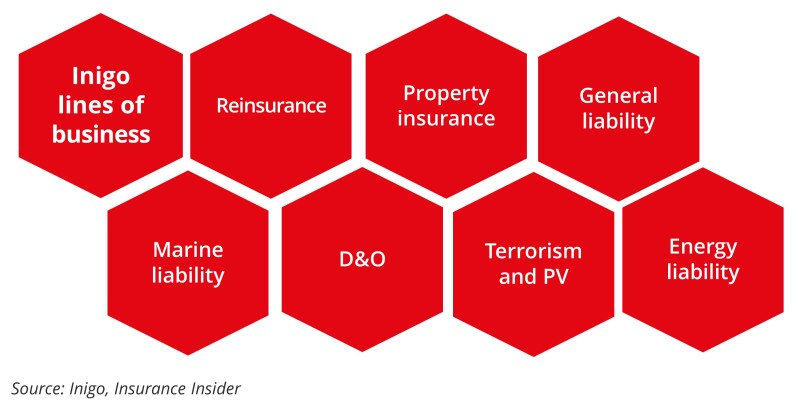The former Hiscox CUO told delegates yesterday that Inigo, which launched in January this year with private equity and pension fund capital only, was on track to write $427mn in gross premium this year.
Inigo launched with capital from investors JC Flowers, Oakhill, the Qatar Investment Authority and Caisse de dépôt et placement du Québec, with each contributing 25%.
“I do feel a little bit like a Bateman cartoon,” Watson said, referring to HM Bateman’s iconic drawings, many of which were set in the Lloyd’s underwriting room: “The man who set up a syndicate at Lloyd’s and didn’t use any Names capital.”
Watson said he did not seek out Names capital for the business because of the need for a fast set-up – the business was created in just five months – as well as for “efficiency in all things”, including its accounting structure.
“I would genuinely have loved to have found a way to have worked with all of you, to incorporate that into our capital stack, but we were just not able to have those conversations and find a way of buying an agency, funding it, with any level of certainty in the time frame we were having to work to,” Watson said.

However, he added the business was now “categorically” ready to pursue Names backing as it looks for “significant growth” next year.
Watson said that he, Inigo CFO Stuart Bridges and CUO Russell Merrett all had a “long history” of working with Names capital throughout their careers, although he emphasised Inigo’s need for simplicity.
“Before, I ran a business that had a strong third-party capital strain. It ended up as a nightmare trying to run a big third-party capital business,” he said.
However, he added: “We will be talking to a number of [members] agents and trying to find a way.”
The executive said Inigo had rejected the route of applying to start a syndicate in a box (SIAB) or opting for a turnkey arrangement such as that offered by Asta in favour of buying the StarStone managing agency, for size and cost reasons.
“The Asta option is a perfectly valid option,” he said, but added the charges levied by turnkey agencies would detract from the profits available in a hardening market.
“I’d rather spend that money buying an agency and being in control,” said Watson.
He also rejected the SIAB route as too small-scale for Inigo’s ambitions.
He said: “All these innovation things are all very lovely, but they’re worth £3.10; they’re nothing.
“The innovation in our industry is around data and analytics and how you change what you’re already doing, not finding cryptocurrencies.
“They’re good people, but I think SIAB is aimed for an agency or a new idea or an MGA in the States who want to have an element of risk-carrying.”
The innovation in our industry is around data and analytics and how you change what you’re already doing, not finding cryptocurrencies
Watson also revealed the split of Inigo’s portfolio in its first year of trading. Of this, 26% was property cat excess of loss (XL) reinsurance, and 21% was D&O business.
Direct and facultative was another significant proportion at 17%, with general liability taking up a further 10%. Risk XL and quota share reinsurance took up a further 9% each, with smaller proportions of marine and energy liability, terror and political violence, specialty reinsurance and XL retro.
He highlighted that the carrier writes cyber reinsurance “because we can cap the liability”, but added that it does not write primary cyber, for which he believes the potentially huge downside is “hard to be certain of”.


